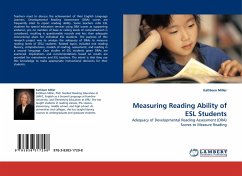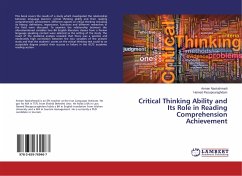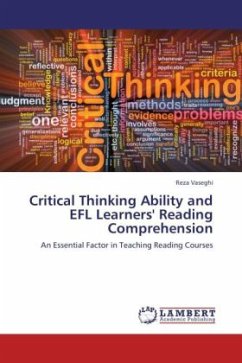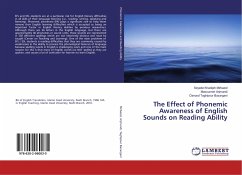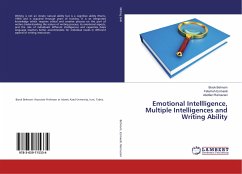Teachers meet to discuss the achievement of their English Language Learners. Developmental Reading Assessment (DRA) scores are frequently sited to report reading ability. Some teachers refer ESL students for special education services using DRA scores as supporting evidence; yet, no mention of base or ceiling levels of comprehension is considered, resulting is questionable records and less than adequate instructional plans for individual ESL students. The purpose of this research project was to analyze the adequacy of DRAs to measure reading levels of (ESL) students. Related topics included oral reading fluency, comprehension, models of reading, assessment, and reading in a second language. Case studies of ESL students given DRAs are examined. Implications and recommendations based on results are provided for mainstream and ESL teachers. The intent is that they use this knowledge to make appropriate instructional decisions for their students.
Bitte wählen Sie Ihr Anliegen aus.
Rechnungen
Retourenschein anfordern
Bestellstatus
Storno

